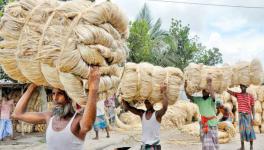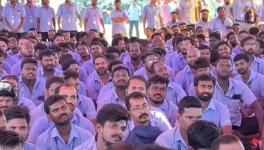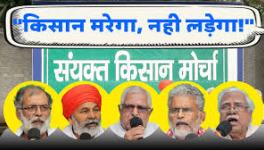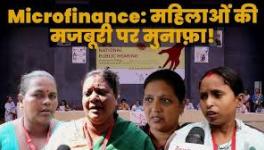Are Workers’ Interests Truly Represented by the Trade Unions Amendment Act?
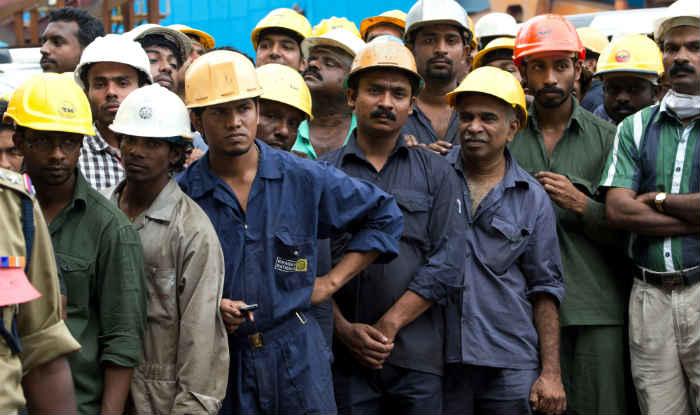
In an attempt to revamp existing procedures for the recognition of trade unions in India, the Ministry of Labour and Employment issued a notification on July 20, inviting comments on the proposed draft of the Trade Union Amendment Bill, 2018.
The notification explicitly highlights the need for the move, stating that the existing Trade Unions Act, 1926 does not provide for the recognition of trade unions or the federation of unions by the appropriate government. In the present form, which lacks statutory backing, verification drives are conducted by the central chief labour commissioner, it is upon his/her recommendation that recognition is provided to the unions by the ministry.
What does recognition even entail?
Trade unionism asserts collectively the rights of workers in establishments. Simply put, the process of recognition entails the employer accepting the exclusive representative character of a specific trade union.
For example, in a classroom scenario, student A gets chosen to represent the interests of the class to the school. This principle of collective bargaining is exclusive to recognised unions, making them the sole representatives of all workers in industry when it comes to issues of negotiations with the management and representation of workers’ interests. This exclusive representation arrangement hopes to eliminate the possibility of inter-union conflicts, further leading to the streamlining of negotiations on the terms of employment with the management. Any negotiated settlement that the recognised union achieves has the potential of being binding to non-members of the recognised union as well.
The proposed act thus makes it compulsory for establishments to recognise a trade union as representative of its demands.
In the present scenario, workers in establishments are affiliated with multiple unions at the same time, the proposed act has more to it than meets the eye; the consequences of the Bill are graver than just filling a gaping hole of uniformed representation.
In the proposed draft, the selection of the union takes place through a secret ballot, wherein all eligible workers of the organisation may vote for their chosen union.
The draft, along with its process of recognition has raised concerns of politicisation of the process, while these concerns may not be new given that the labour movement in India has been greatly influenced by political parties, a reflection of which can be seen in the fact that out of 13 recognised trade unions currently, major trade unions have political influence to a great extent. Indian National Trade Union Congress (INTUC) is a wing of the Congress party, the Bharatiya Mazdoor Sangh (BMS), is a wing of the Rashtriya Swayamsevak Sangh, Centre for Indian Trade Unions (CITU) affiliated with the CPM, and All India Trade Union Congress (AITUC) by the CPI among others.
The extent of political control among the unions is varied across the spectrum, in some forms indirect, such a maintenance of dominance in the union by a party or direct where a union may be organised by a political party. In many instances, centralised financial control of the union is favoured by political parties. Party leaders often hold offices.
In this context, the issue of a fair, accountable ‘secret ballot’ assumes critical importance, K. Hemalata, the president of the CITU, stated that the demand for a secret ballot has been met after a long struggle, and would enable workers to vote for whichever union they feel, without the fear of their identity being revealed.
The idea of a general election-like scenario for the recognition of the union starts to look problematic in its present form, as the Bill creates a horse race type of a scenario where the union is focused on maximising votes in its favour to gain recognition and monopoly of representation.
In this context, the recognition process gets reduced to a clear case of misplaced priorities for the groups representing workers as their focus shifts towards seeking legitimacy instead of prioritising workers’ interests, which in turn could weaken the spirit of the workers’ rights movements.
A major bone of contention in the issue of non-recognised unions not willing to associate with the recognised ones, as they may have vested interests or they may fail to recognise their issues, with respect to the upcoming Bill, the agency of the non-recognised unions gets taken away and decimates their channels of engagement with the management. The debate over this sentiment was previously triggered during the workers’ strike against the car giantMaruti Suzuki in 2011.The company's management had vehemently denied engaging with the workers protesting against pathetic working conditions, stating that the workers were not recognised and that the company had an existing union. Allegations of the union being a puppet union highlighted the trickle-down effects of politicisation that can now be cemented further with legislative backing through the proposed Bill. Commenting on this, K. Hemalata added, “The Bill, in its current form, does not represent workers interests.” Speaking in favour of the current verification process, she stated that unions with at least 60 per cent of the vote share should also be given a voice instead of giving complete monopoly to one union.
A major concern, she added, was the fact that the proposed Bill takes under its ambit the unions at the central level; however, unions at the enterprise level also need to be considered.
While the issue of multiplicity of the unions and the chaos it creates is at the heart of the legislation, the monopoly in the recognition process will bring with it will lead to the subversion of diversity in workers voices.
Get the latest reports & analysis with people's perspective on Protests, movements & deep analytical videos, discussions of the current affairs in your Telegram app. Subscribe to NewsClick's Telegram channel & get Real-Time updates on stories, as they get published on our website.












